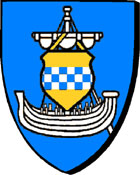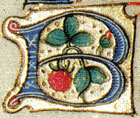Scotland
Bro Skoz


Renfrewshire
***
| Noms de lieux | Noms de personnes |
|
Scotland Bro Skoz |
|
Renfrewshire *** |
 arochan Hill arochan Hill |
Coria Dumnoniorum
| page ouverte le 03.08.2004 | forum de discussion
* forum du site Marikavel : Academia Celtica |
dernière mise à jour : 24/06/2009 13:35:35 |
![]()
|
Définition : lieux d'Écosse, dans le comté de Renfrewshire. Ancien camp romain : CORIA DUMNONIORUM. A l'ouest de Glasgow, non loin de la rive sud de l'embouchure de la Clyde (paroisse de Paislay) |
|
![]()
|
Extrait de la carte Ordnance Survey : Map of Roman Britain. |
![]()
|
Histoire : Sur le territoire de la tribu des Dumnonii d'Écosse. |
![]()
| Étymologie
:
a). CORIA. * Rivet & Smith, page 317 : SOURCES - Ptolémée, II,3,7 : Koria ( = CORIA), une ville des D(u)mnonii. - Ravenna, 10756 : CIBRA. Ravenna's form has not been hitherto associated with Ptolemy's, but it seems likely that it is a corrupt form of the other. Of the six poleis assigned by Ptolemy to the D(u)mnonii, the rest were probably taken up by the Cosmographer from the same source as that ultimately available to Ptolemy, and it is logical that the present Cibra should represent the 'missing' Coria. DERIVATION. Seven names need to be considered here collectively : Coria of the Dumnonii, (probably) of the Selgovae, and of the Votadini; Coria Soliliorum; Corionototae ; *Coriosopitum ; and Curia Tectoverdorum. We are thus concerned with three items : Coria, used alone; Corio-, compounded in first place; and Curia, used as an independent word. Our study needs the support of Continental analogues. Coria is apparently not found there (but see below). For the rest we find, in ethnic and place-names : Corio- in first place : ethnic Coriosolites > Corseul (Côtes du Nord, France), Coriosedenses of Gallia Narbonensis, perhaps Coriolani of Italy (Pliny NHIII, 69). In place-names, Coriallum (for earlier *Coriovalium, Coriovallum) > Cherbourg (Manche, France), Coriovallum (for *Coriovalium : see C.J. Guyonvarc'h in Ogam, XVII (1965), 351-54, and in Apulum, VI (1967), 119-22, discussing a study by P. L. M. Tummers) now Heerlen (Holland; < *hariwalia, a direct translation of *Coriovalium into Germanie), Koridorgis (= Coridorgis : Ptolemy II, I I, 15) in Germania Magna, Cortoriacum (for *Corio- : Courtrai) in ND V96. Corio in second place : ethnic Petrucorii (> Périgueux), Tricorii, Toloscorii, Vertamocorii, etc. Curia : Curia Raetorum > Chur (Switzerland), always so spelled (e.g. AI 277,6 and 278,4, TP), on which see Hubschmid in Râtisches Namenbuch, II (éd. A. Schorta, Berne, 1964), 107 and 658, and in Romanica Helvetia, XIV (1939), III ff. ; a probable Curia Grusduas, narne of a pagus at Cologne, and a probable Cur(ia) Cassiciate, a pagus of theCarnutes, in CIL XIII. 3071, on both of which see R. Demangel in REA, XXXVI (1934), 481. (On Corio as a personal name, see references in CORINIUM DOBUNNORUM). The words present in these names are : *corio- (British) 'host, army', represented by Welsh cor 'host, tribe'; in Old and Middle Irish cuire 'band, army' (Watson CPNS 32). Cognates include Germanie *harja, Gothic harjis from a stem *hario- (as in Ario-vistus), and the root is widespread in Indo-European (Holder I. 1126). The Tricorii are thus the '(people of the) three hosts ', the Petrucorii '(people of the) four hosts', and so on. Some Continental scholars have preferred to follow Pokorny 615 in assigning a sense 'Stamm, Sippe' to the word, and Stevens in his chapter 'Roman Gaul' in J. M. Wallace-Hadrill (éd.), France (2nd ed, 1970), 22, has followed this, defining the Petrucorii as 'four kinship-groups'. Against this C. J. Guyonvarc'h in Ogam, XVI (1964), 429-31, argues for an Indo-European base *koro-s, *korio-s 'guerre, armée' : ' Nous pensons devoir corriger ou biffer la possibilité des "trois tribus" pour ne conserver que celle des "trois troupes" dans le nom des Tricorii, allusion évidente aux facultés mobilisatrices des trois cantons d'une nation gauloise.' This is surely right. *coria (British), originally with the probable sense ' hosting-place ' (Jackson in JRS, XXXVIII (1948), 56), thus 'tribal centre', this meaning being that of the three Coria names among the tribes of S. Scotland, later under Roman rule evidently 'centre of a pagus' (as in Coria Soliliorum, in the English Midlands). This word is a derivative of, or is derived from the same base as, *corio-. curia (Latin), as in Curia Tectoverdorum and the three Continental names, has among its senses in administrative language 'court; ward; assembly', and in the case of the toponyms quoted is evidently 'centre of a pagus' in Britain and in Gaul. As between Coria / Curia, then, the issue is unclear. Stevens in Arch. Ael.4, XI (1934), 138-45, discussed the nature of the Curia Tectoverdorum in the Beltingham inscription, and possibly related items, taking the Coria names, Curia Raetorum and the Kouria which appears in some MSS of Ptolemy (II, 3, 7), equating Coria with Curia as phonetic variants within Celtic and concluding that '. . . curia is a Celtic word meaning "army", which was used not only as a subdivision or pagus of the tribe, but as a place-name to describe the meeting-place of the pagus'. To the linguistic argument ofthis Jackson (op. cit.) objected : ' [Stevens] regards Curia and Coria as forms of the same name, in the belief that "the mutation of o and u is a very familiar phenomenon in Celtic phonetics." This is a misconception. British Coria, if from *corio- 'host', has original -o-, and a vowel-affection of -o- to -u- in words of this type happened only in Goidelic, not British or Gaulish, and that towards the end of the fifth century, certainly not earlier. It is very improbable therefore that Ptolemy's Kouria is a spoken variant of Coria, and equally unlikely that the curia of the Beltingham inscription contains Celtic *corio- and means pagus. . . Coria presumably means"place of hosts", and Kouria is a mere scribal corruption.' This is obviously right so far as Celtic phonetics go. But the matter continues unresolved (after Jackson's correction of Stevens), because interférence of one kind and another there certainly was. Ptolemy's ou could be a scribal error, as Jackson says, but it could well be a latinising interpreation, not by a scribe, but by Marinus or even by the man who drew up the map which Marinus used; that is, someone associated the Celtic name with Latin curia. It is not the only instance. The Coriosolites of Gaul are usually so spelled, but in Caesar BG are spelled Curiosolites no fewer than four times (II, 34; III, 7; III, II, VII, 75). We further have the situation within Britain that, while the S. Scottish Coria places retain their Celtic purity, in romanised regions Curia Tectoverdorum is scarcely to be distinguished linguistically from Coria Soliliorum, both names being recorded in inscriptions and therefore unimpeachable. There is no way forward in arguing about Celtic phonetic developments, as Jackson showed, but it is worth noting that in spoken Latin, although the long u of curia remained unchanged, it was sometimes represented as o : a British instance is provided by RIB 1337, of A.D. 205-208, where we find Asto(rum) for Astu(rum); hence Coria Soliliorum, in a text which has several vulgar features, could well be for *Curia, which brings it into line with the Beltingham inscription. Stevens was right, one suspects, in scenting some relationship between Celtic coria and Latin curia, though he did not argue it correctly. Hubschmid lists the Swiss Curia (Raetorum) as being originally a Celtic *coria name. The simplest solution is to propose — and this in no way infringes Jackson's définition of Celtic phonetics — that all the Coria / Curia names, in Britain and on the Continent, originally were Celtic *coria 'hosting-place, tribal centre'; that some in little-romanised regions (S. Scotland) naturally remained as Coria, as possibly Coria Soliliorum did too; but that as romanisation proceeded, there was inevitably some assimilation to Latin curia. This is already shown in Caesar, is probably shown in Ptolemy's Kouria, is certainly shown in Curia Tectoverdorum in the latinised military zone and in the three Continental Curia names. The assimilation might have been a written one only: in the mixed Latin-Celtic society of Vindolanda vicus, ail may well have pronounced coria, but when an inscription was to be cut, a more dignified Latin-looking curia was adopted. IDENTIFICATION. Probably the Roman fort at Barochan Hill, Renfrewshire (NS 412690), the name being transferred from a native meeting-place which it controlled. ******* b). BAROCHAN HILL * |
![]()
|
Sources : - Eilert EKWALL : Dictionary of English Place-Names. Oxford * ALF RIVET & Colin SMITH : The Place-Names of Roman Britain. - envoi de ** |
![]()
|
Autres sites traitant de Barochan : * lien municipal : * Autres liens Internet : http://canmore.rcahms.gov.uk/en/site/43107/details/barochan+hill/ http://www.roman-britain.org/places/barochan.htm http://www.scran.ac.uk/database/record.php?usi=000-299-998-073-C * forum du site Marikavel : Academia Celtica * pour le blason de Barochan : dessin JC Even sur logiciel Genhéral5. hast buan, ma mignonig go fast, my little friend |
![]()